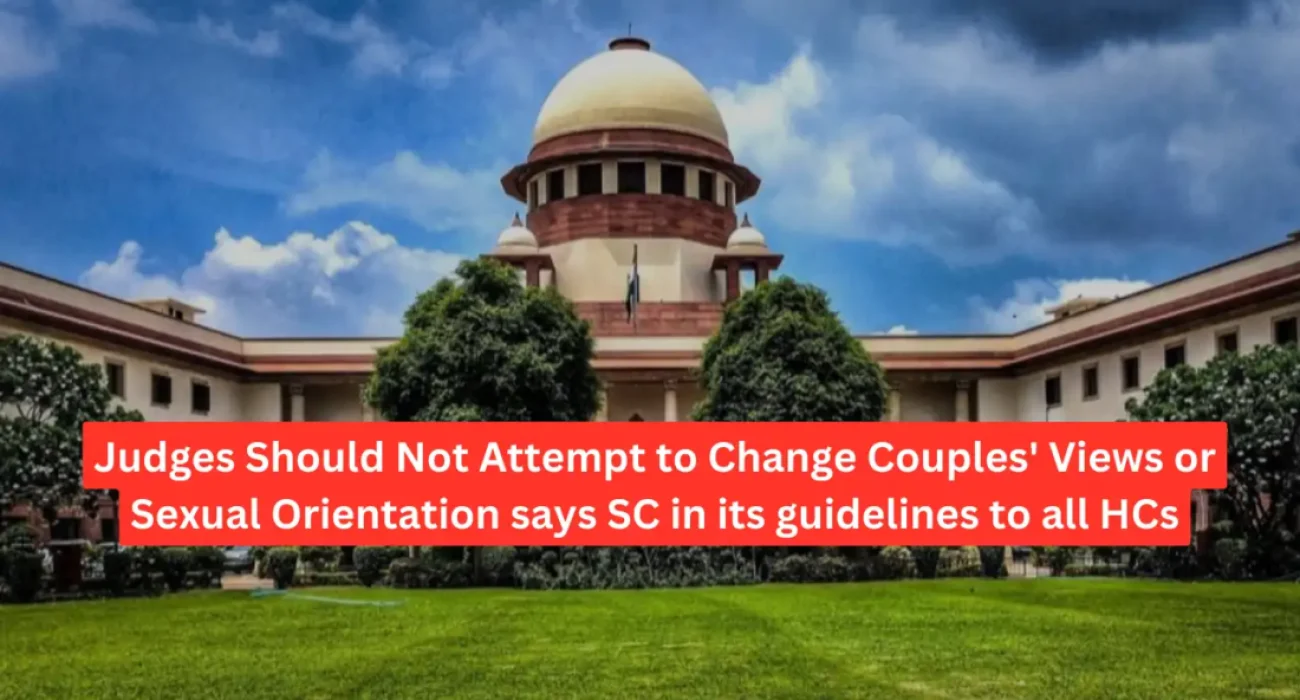

The Supreme Court of India has ruled in a landmark decision that High Courts must follow when considering habeas corpus petitions or requests for police protection, especially when they involve LGBTQ+ individuals. This ruling is the result of a woman’s challenge against a Kerala High Court ruling requiring her alleged lesbian partner to attend therapy. The Supreme Court stated that these orders may have a deterring impact and cause LGBTQ+ people to suffer.
Table of Contents
ToggleThe case arose when a woman (the petitioner) claimed that her parents were unlawfully detaining her lesbian partner and filed a habeas corpus petition. The spouse was ordered to receive counseling by the Kerala High Court during its consideration of the plea. The petitioner filed a challenge against this order with the Supreme Court.
The petitioner contended that the Kerala High Court’s counseling order was detrimental in addition to needless because it could have caused her partner severe distress. She argued that these guidelines were discriminatory and infringed against the fundamental rights of members of the LGBTQ+ community.
The respondents defended, stating that the counseling was in their daughter’s best interest, against the High Court’s order. They contended that the counseling order was intended to ensure their daughter’s well-being and that she needed expert assistance to better understand her circumstances.
The Supreme Court, made the following significant observations:
The Supreme Court issued comprehensive guidelines for High Courts to follow when dealing with habeas corpus petitions or petitions for police protection:
The Supreme Court further underlined that in order to defend the fundamental rights and dignity of LGBTQ+ people, these rules must be adhered to in full.
The Kerala High Court’s counseling directives were overturned by the Supreme Court, highlighting the need of judges having compassion and respect for the rights of LGBTQ+ people. By upholding the fundamental rights and dignity of the LGBTQ+ community, this ruling seeks to guarantee the equitable and constitutionally compliant handling of habeas corpus petitions and police protection pleas involving its members.
IAW resources
Browse our help directory